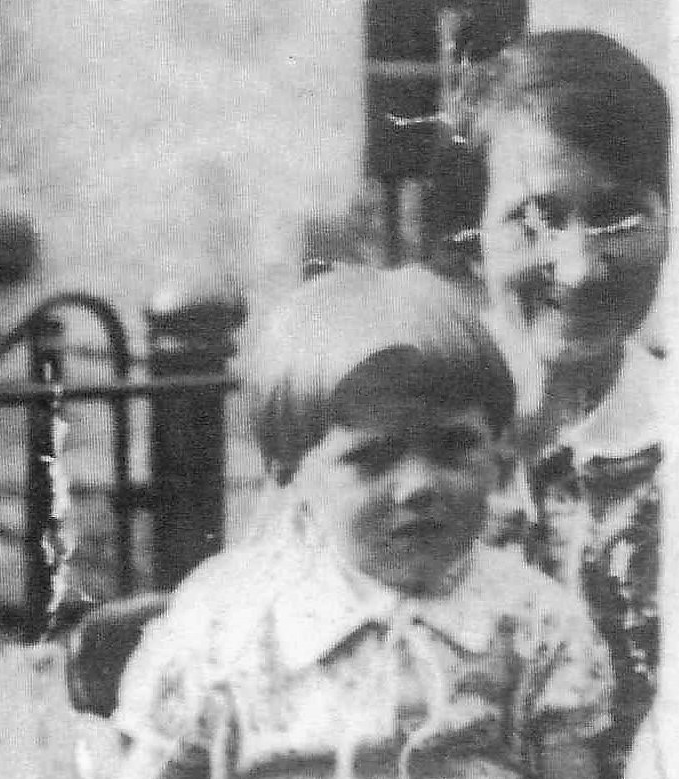While fears sweep Belfast about the spread of the Coronavirus, one pensioner told the Andersonstown News how living with deadly disease used to part of daily life for residents of the city.
Bridie Millar (90) told how "the White Scourge" - tuberculosis - swept through whole streets, wiping out families. It took her mother Annie Mary, and schoolgirl Bridie spent two years in a fever hospital along with her three younger siblings.
Bridie Millar recalls the TB pandemic
"The coronavirus actually reminds me of those days and we had the same emphasis on hygiene," she said. "On the buses there were ads reading 'coughs and sneezes breed diseases'. You were told to cough into a handkerchief - there were no tissues in those days.
"It was wild - thousands of people died of TB. When the war was over everything was closed like now, but there were plenty of dances and it spread like wildfire. Up the street a whole family of maybe five or six was completely wiped out. It was worse in the city and the streets around here were full of it.
"It became known as the Galloping Consumption because it it spread so quickly and you lost weight. There was rationing right up to 1952 so food wasn't plentiful and the houses were small so it spread easily.
"But some people thought it was a saints' disease because saints died of it including the Little Flower Sister Theresa who died when she was only 24. I remember one old woman saying to me: 'I'd be glad if I had it'."
But it wasn't long before the disease struck the McKeown household in Clondara Street.
"In May or June 1940 my mother took a cold and we finally had to call the doctor, a Dr Ryan, whose brother had been on the prison boat with my father. He said to her: 'I'll put you somewhere where you'll rest' and they took us all in. We must have all have had TB."
Aged 11, Bridie was sent to Whiteabbey Hospital, where there was a school for the children. "I was in bed the night the bombs fell," she said talking about the Belfast Blitz. "The nurse ran into the ward and said 'we've got everybody but forgot about you, and your sister in the cot beside you!'
"A lot of the bombs fell into the sea outside and I thought the noise was like the sheets blowing in the wind on Dr Walker's line - maybe that was the swish of the planes for all I know."
She added: "My brother Anthony was sent home to die when he was just seven - damn the dying did he do - he's still alive!"
A young Bridie Millar with her mother Annie Mary
She said people were terrified of getting TB. "I remember one woman in the street who talked to my mother in an air shelter telling her that if people find out she had TB they will cast it up to her and her kids forever.
"When I got out of hospital I had one year left to do at St Kevin's and my teacher Mrs Rocks wasn't there anymore. I always came first and got presents from her and I wondered why she wasn't there, but she had got married and had to leave teaching, as that was the rule in those days.
"People had a good idea where you had been but no one said a word."
Her mother was to spend nine years being treated in various hospitals before she died on June 7 1949 in Musgrave Park. "We were all fit and healthy. She was a country woman and we were reared in the Bog Meadows. But it made no difference - we all got TB.
"I remember on Christmas 1946 when I was 16 or 17 I came in and she was lying on the settee - she had signed herself out of hospital and got a taxi home for Christmas. But she started coughing and had to go back to the fever hospital and the whole house was disinfected again.
"The cure came around 1946 and people were being treated in Belvoir Hospital which was a fever hospital. But my mother was moved to the Nissan huts at Musgrave and the doctor took me to the side and told me that the cure came too late for her as her two lungs were gone. I went back to her bed and she asked me what did he say and I said he says you're doing very well. But she knew she was dying."
Tuberculosis plagued Ireland for centuries - in the 30 years from 1831 it killed 414,000 people here. It's estimated that it killed 120,000 people in Belfast in the early 1900s - when the total population was only 350,000. Poor housing and terrible conditions in the mills were to blame, with workers walking long distances home in clothes soaked by spray from the looms.
Today although it has been effectively eradicated from Ireland, tuberculosis still ravages many countries - killing 1.2 million people worldwide in 2018.



